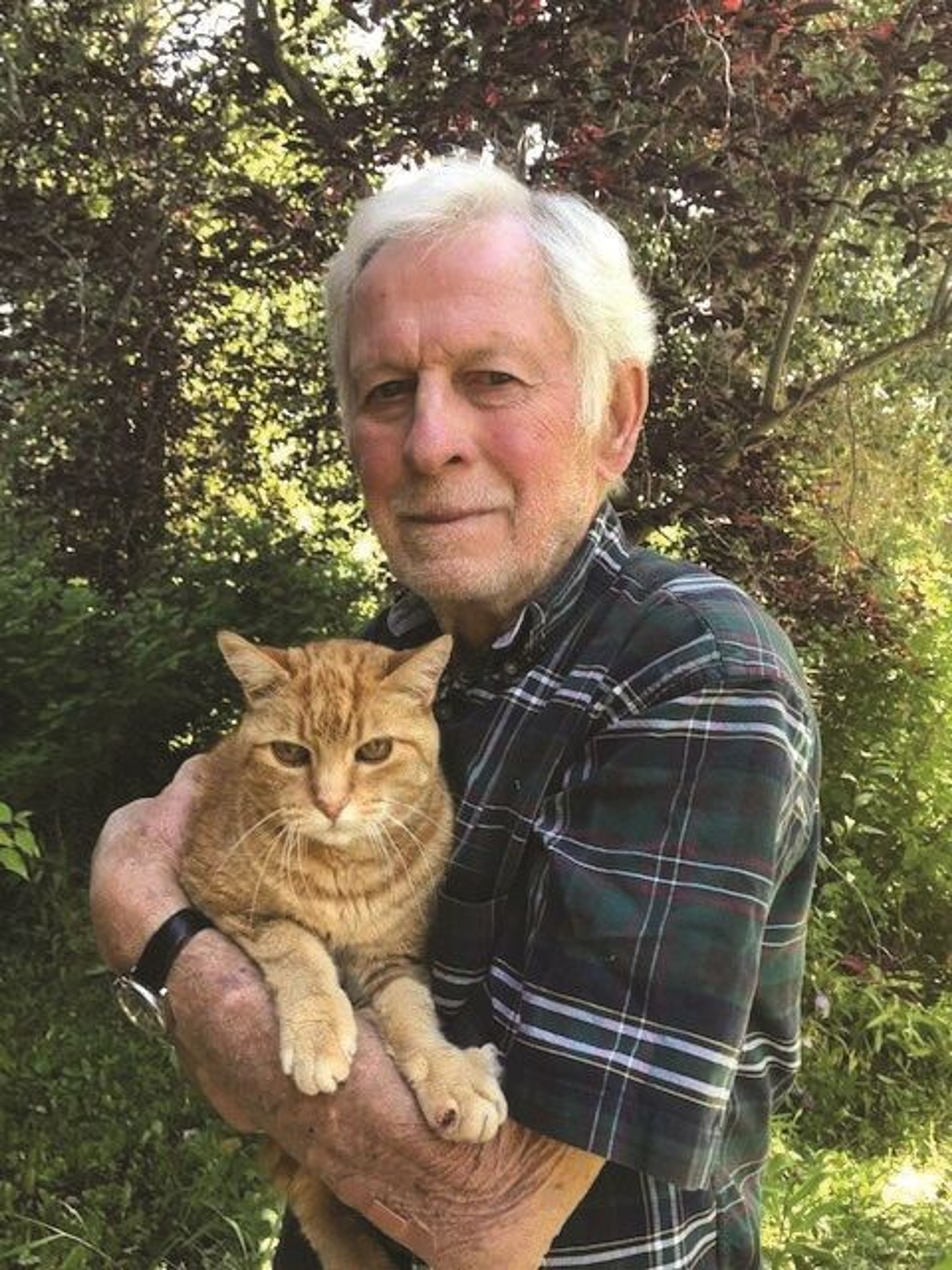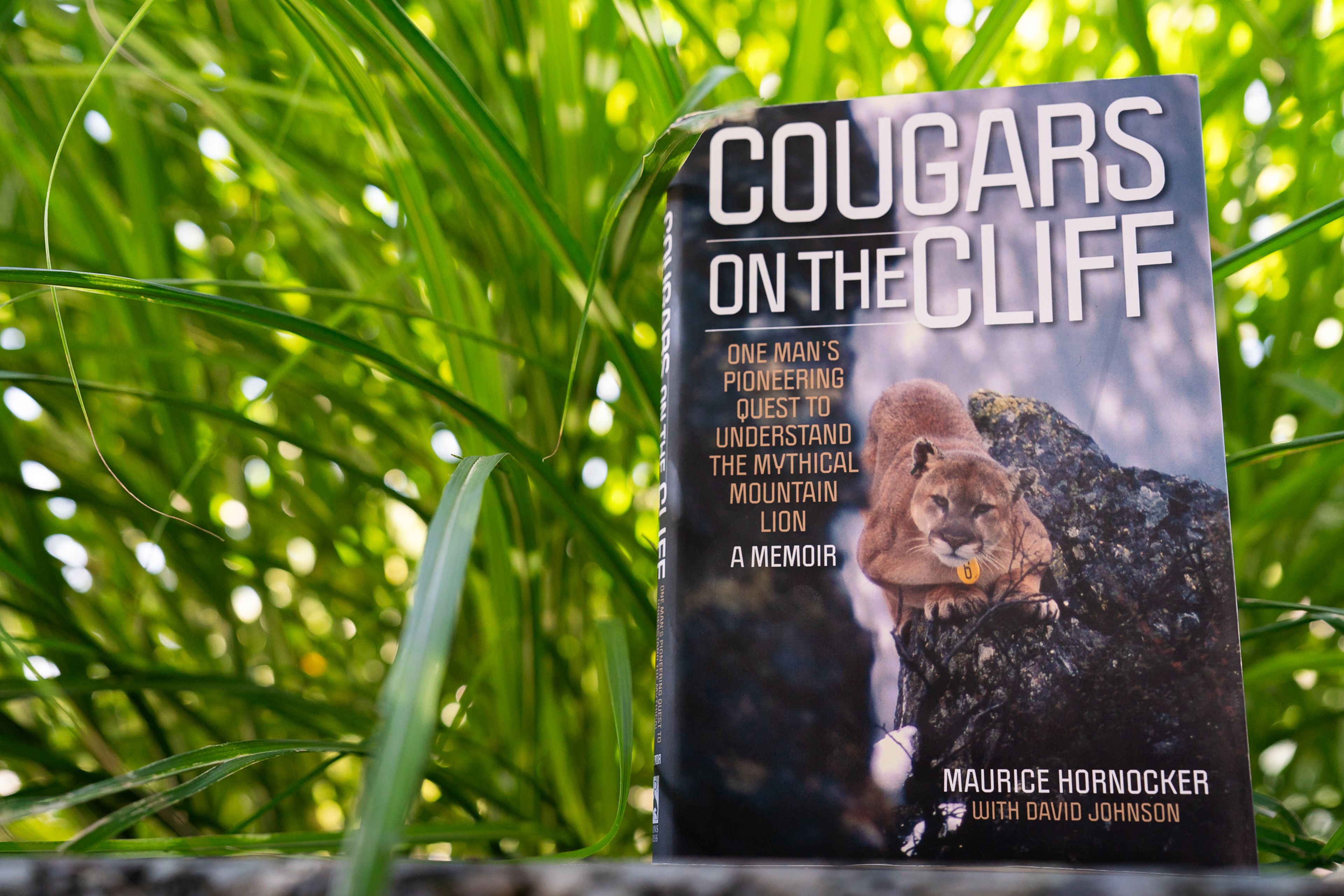Maurice Hornocker now walks with the giants of his field.
Of course, he’s long matched the wide strides and big footprints of the greats in wildlife biology. But now it’s official. The 93-year-old wildlife researcher who lives at Bellevue, Idaho, and launched his career with a groundbreaking study on cougars in the central Idaho primitive area is this year’s recipient of the Aldo Leopold Award from The Wildlife Society.
“It’s both humbling and an honor. I still haven’t soaked it up yet,” Hornocker told the Tribune. “It’s a very great tribute and I’m so humbled by it all.”
The award, named for the famous author, naturalist and conservationist, is the highest honor bestowed by the organization of wildlife professionals. Past recipients include former Forest Service Chief and wildlife biologist Jack Ward Thomas; the famous grizzly bear researcher John Craighead, with whom Hornocker worked early in his career; and politician Stewart Udall, who championed important environmental legislation such as the Wilderness Act and the Land and Water Conservation Act.
Hornocker, who ran the University of Idaho’s Cooperative Wildlife Research Unit from 1968-85 and went on to found the Hornocker Wildlife Institute that was based first at Moscow and then Bozeman, Mont., said the people he worked with during his decadeslong career deserve credit as well.
“I have just been blessed with wonderfully passionate and remarkably capable students and colleagues during my career,” he said. “I write the music and they conduct it.”
Hornocker and his colleagues studied large cats, including Siberian tigers and other predators, and a host of other species across North America and around the globe. But he may be best known for the cougar study that shined a light on the secretive cats and painted a picture that ran counter to the negative popular opinion at the time and challenged the conventional wisdom of wildlife managers.
“The general feeling was that if they weren’t killed at every opportunity, they would get so thick they would kill everything in sight,” Hornocker told the Tribune last year. “There was no life history information.”
The study showed cougar populations did not expand exponentially and the animals did not wipe out deer and elk herds. Instead they helped to regulate big game herds and keep them moving so the ungulates didn’t overgraze the habitat they needed to survive.
Toni Ruth of the Nature Conservancy and others nominated Hornocker for the award and said his cougar work still resonates today.
“His recommendations for the management of cougars, moving from bounties to the implementation of hunting seasons and quota limits, remain the single most significant change in how cougars are managed in North America today,” they wrote in a nominating letter.
That work was detailed in “Cougars on the Cliff: One Man’s Pioneering Quest to Understand the Mythical Mountain Lion,” a book Hornocker penned with retired Tribune reporter David Johnson, of Moscow.
“It’s been really gratifying the response the book has gotten from all ages and all the cultural levels,” Hornocker said. “It’s really, really rewarding and I give David Johnson the monster credit to that. I told the story and he put the words to it.”
The study, which started in 1964, was bold and challenging. Hornocker and trapper Wilber Wiles used hounds to pursue and tree cougars in the Big Creek Drainage, which is now part of the Frank Church River of No Return Wilderness Area. They sedated treed cougars with a dart gun and then climbed the tree and lowered the drugged but still conscious animal to the ground where it was marked with identifying collars and ear tags. This was the days before radio tracking collars. By continuing to capture and recapture cougars, they established cougar numbers and were able to show the population was stable and that males kept to themselves.
During the decade-long study, deer and elk populations expanded. Hornocker found that because cougars tended to cull the old, infirm and the young, predation benefitted deer and elk.
“In other words, deer and elk were good for mountain lions and mountain lions were good for deer and elk,” he wrote.
While he is honored by the award, Hornocker said a three-day tribute to him and his work hosted by University of Idaho last September matches it.
“The Moscow event meant equally as much to me as the Aldo Leopold Award. This came from students and colleagues that have known me for decades and experienced the same kind of successes and failures I have and they speak from the heart. I have been so blessed in that manner.”
Barker may be contacted at ebarker@lmtribune.com or at (208) 848-2273. Follow him on Twitter @ezebarker.










